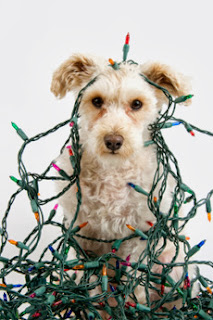Antifreeze poisoning is one of the most common forms of poisoning in small animals, and this is because it is so commonly found in households. Antifreeze poisoning typically happens when antifreeze drips from a car’s radiator, where it is licked off the ground and ingested by a pet. Your dog may also come into contact with antifreeze that has been added to a toilet bowl. This occurs in homes where the residents will use antifreeze during the cold months to "winterize" their pipes. Even if you do not take this action in your own home, it is something to be aware of when visiting other homes, or when vacationing at a winter residence.
It is the toxin ethylene glycol that makes antifreeze lethal. Because of this, dogs will consume great quantities of ethylene glycol before being repulsed by its aftertaste. By then, it is too late. It does not take a significant amount of ethylene glycol to cause fatal damage to the system; less than three ounces (or 88 ml) of antifreeze is sufficient to poison a medium-sized dog. Antifreeze poisoning affects the brain, liver, and kidneys.
Ethylene glycol is also found in engine coolant and hydraulic brake fluids.
Symptoms
Some common signs of antifreeze poisoning in dogs and cats include:
- Drunken behavior
- Euphoria/Delirium
- Wobbly, uncoordinated movement
- Nausea/Vomiting
- Excessive urination
- Diarrhea
- Rapid heart beat
- Depression
- Weakness
- Seizures/Convulsions/Shaking tremors
- Fainting
- Coma
Prevention
Antifreeze poisoning can be easily avoided by following a few simple precautions:
- Keep antifreeze containers tightly closed and stored out of the reach of pets.
- Take care not to spill antifreeze, and if it is spilled, ensure that it is immediately and thoroughly cleaned up.
- Dispose of used antifreeze containers properly.
- Check the radiator of your car regularly, and repair leaks immediately.
- Do not allow your dog to wander unattended where there is access to antifreeze (e.g., roads, gutters, garages, and driveways).
- The U.S. Food and Drug Administration has labeled propylene glycol safe and it is now used for antifreeze. Look for antifreeze with this ingredient instead, to keep your pet safer from accidental poisoning








